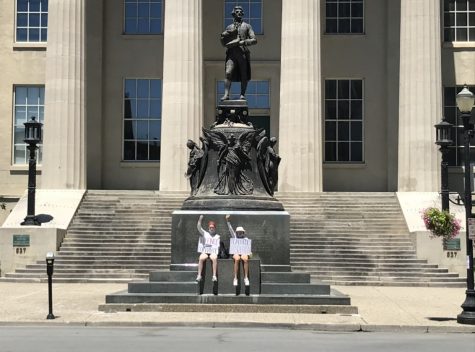Forces of Change
December 14, 2020
For a century, the youth of this nation have played major roles in the creation and progression of social movements, more-so than any other point in history. From the hippie movement of the 60s and 70s, to the chaos of the Los Angeles riots in the 90s, to the Black Lives Matter movement of today, the youth of this nation have always been at the forefront of changing social attitudes. Nowadays, with the advent of mass social media consumption, American teens have never before had so many low–threshold opportunities for political participation and civic engagement.
In the wake of recent tragedies, such as the deaths of George Floyd and Breonna Taylor, students around the country, including some from South Oldham High School (SOHS), have taken up activism in a multitude of forms against a perceived
tyrannical and abusive system of policing in the United States. Protests, and even riots, for months now, engulf every major city in the country, Louisville included.
The Dragon’s Tale reached out to two particular students from South Oldham, Mackenna Williams (12) and Sarah Burbank (12), both seniors, in the hopes of gaining a better understanding of the youth perspective on this recent surge of activism.
“There are no innocent bystanders, and being complacent to injustice almost morally equates you to the oppressor yourself” says Williams, who felt compelled to act because of a personal connection to what’s happening; “My two cousins, who are adopted from Ethiopia, are elementary age and have already been told about the dangers of police, while the white kids of the same age are being taught that the police will protect them.”

Both Williams and Burbank took part in protests downtown together, which Burbank described as “peaceful,” with “a focus on unity and addressing deep generational trauma.”
Is there hope for the future of Louisville? Williams and Burbank think so. “I love my city, and I always have…” Burbank says, “…honestly, it sounds like something that you’d read in a history textbook and think – how could they let this happen?”
Throughout all of this, one thing is clear; online activism, which USC Political Science and History professor Mark E. Kann aptly calls “digital democracy,” will amount to very little without manifestations of political activism in street demonstrations and in the halls of government; vote, and do your part, as is your duty as an American citizen!